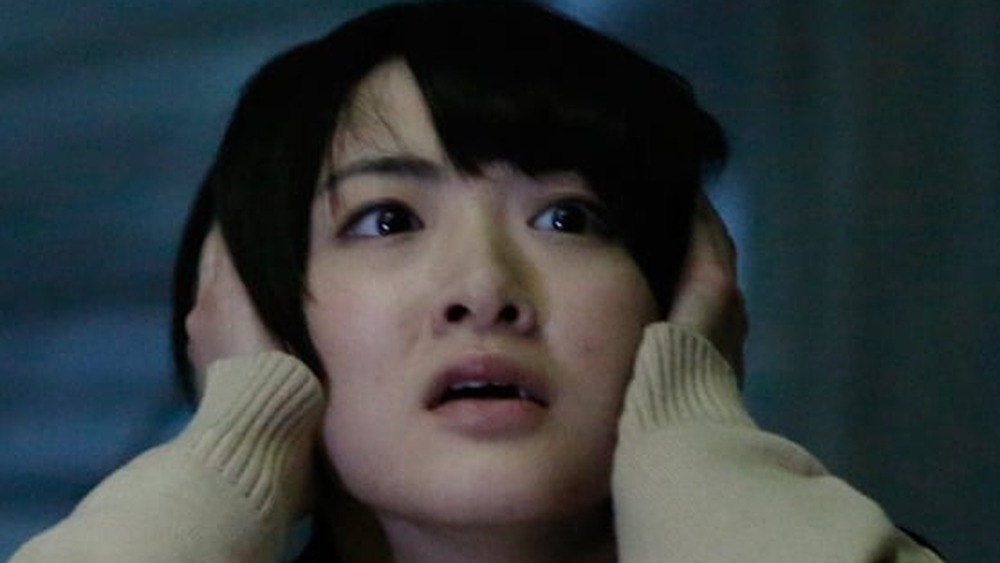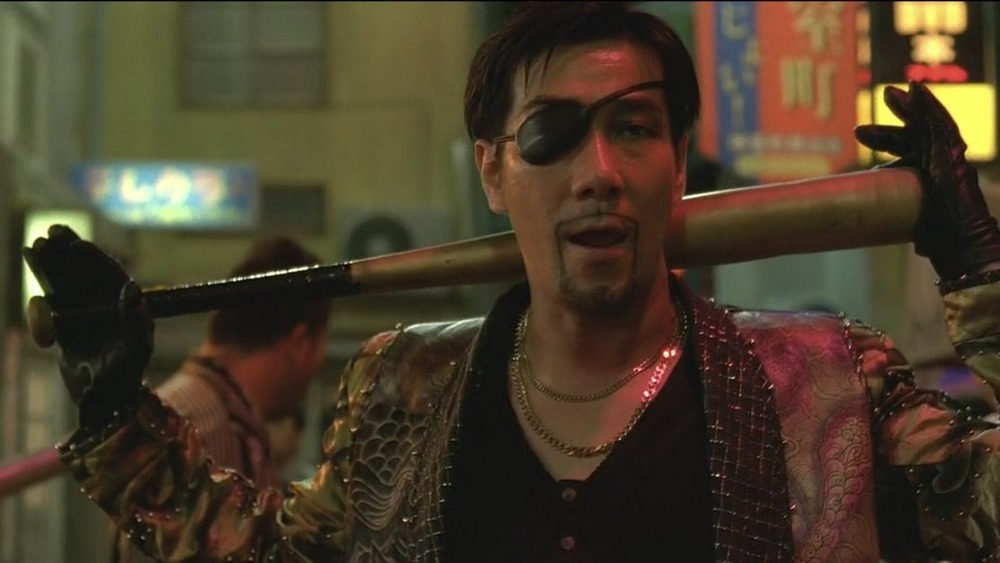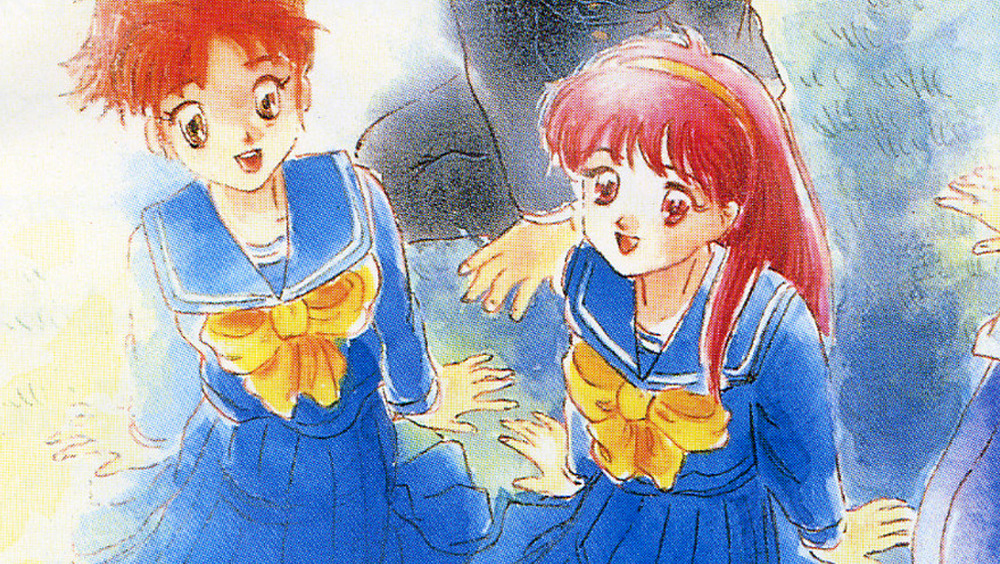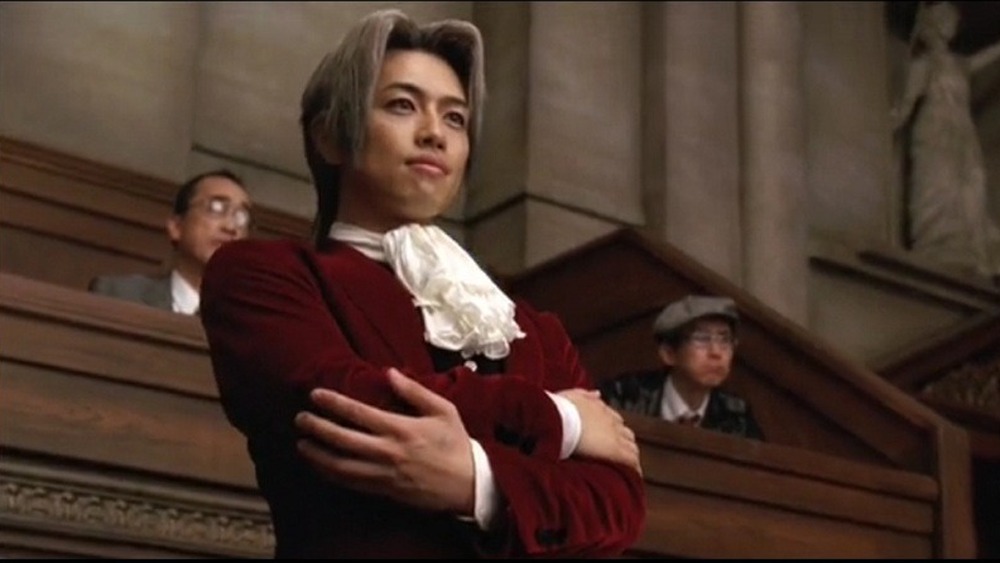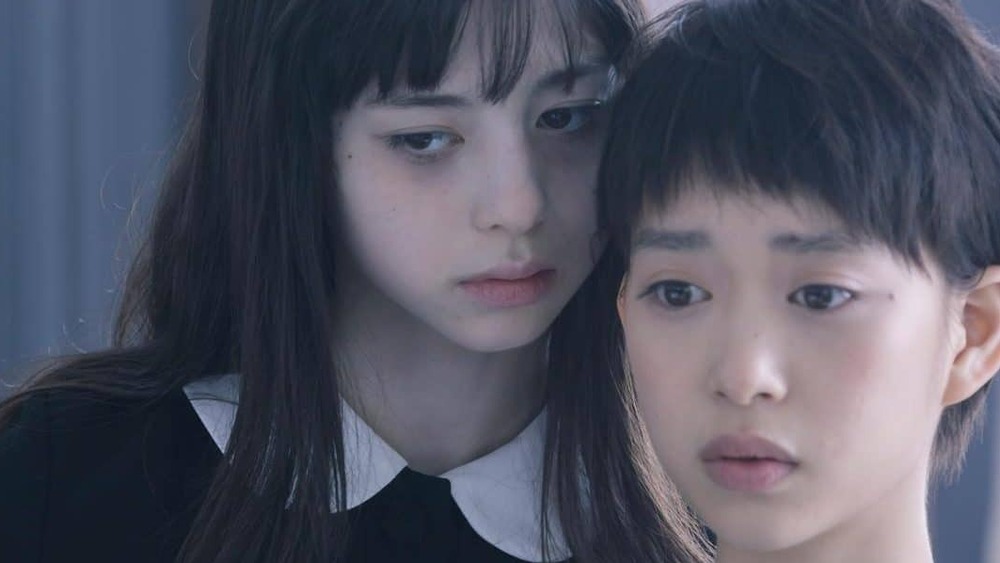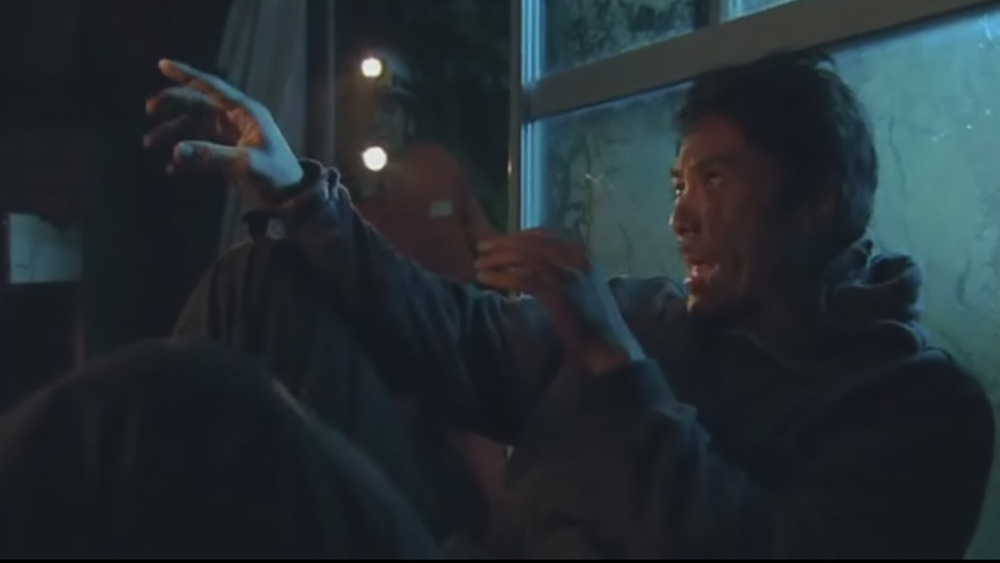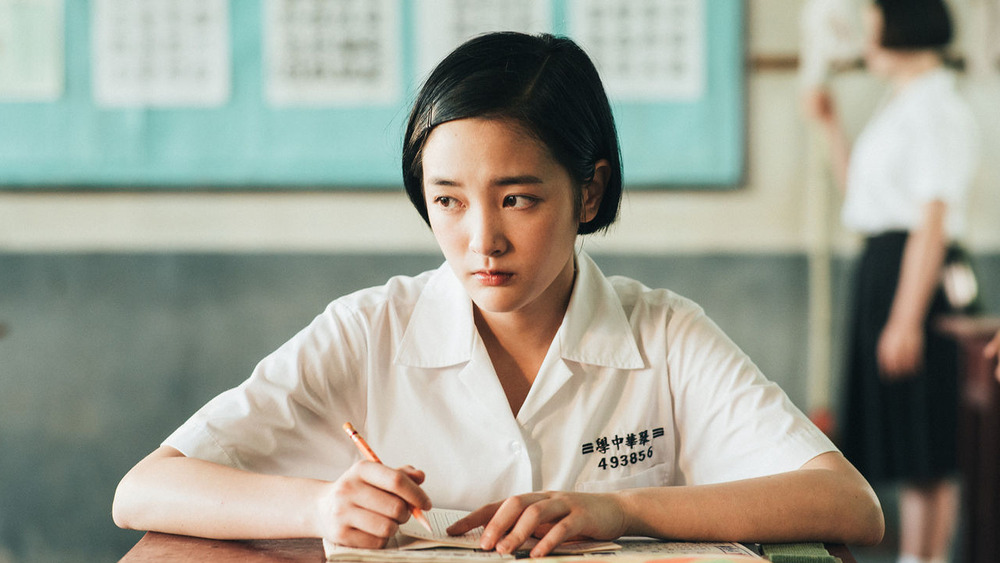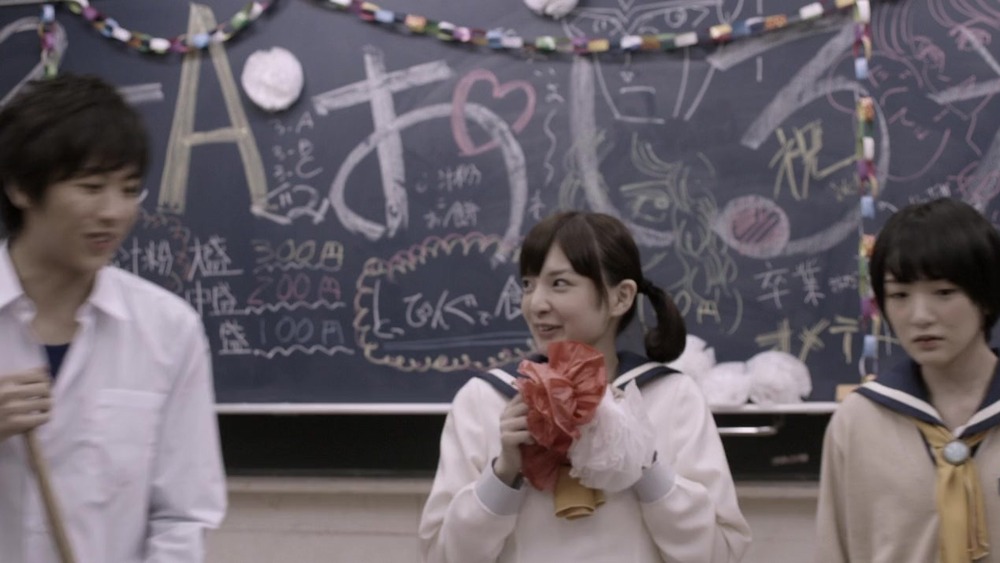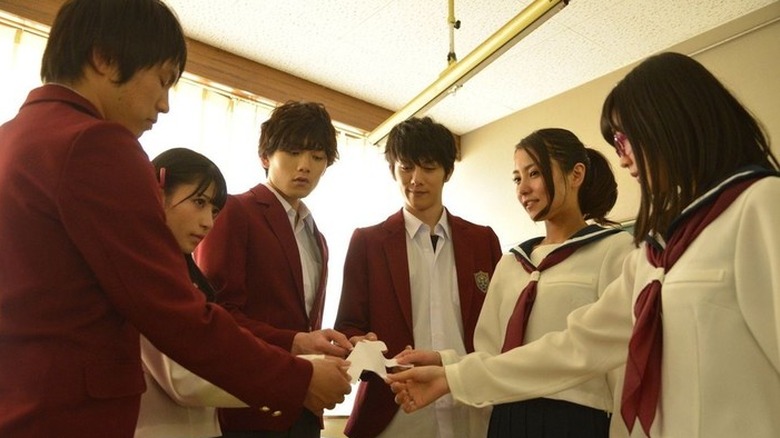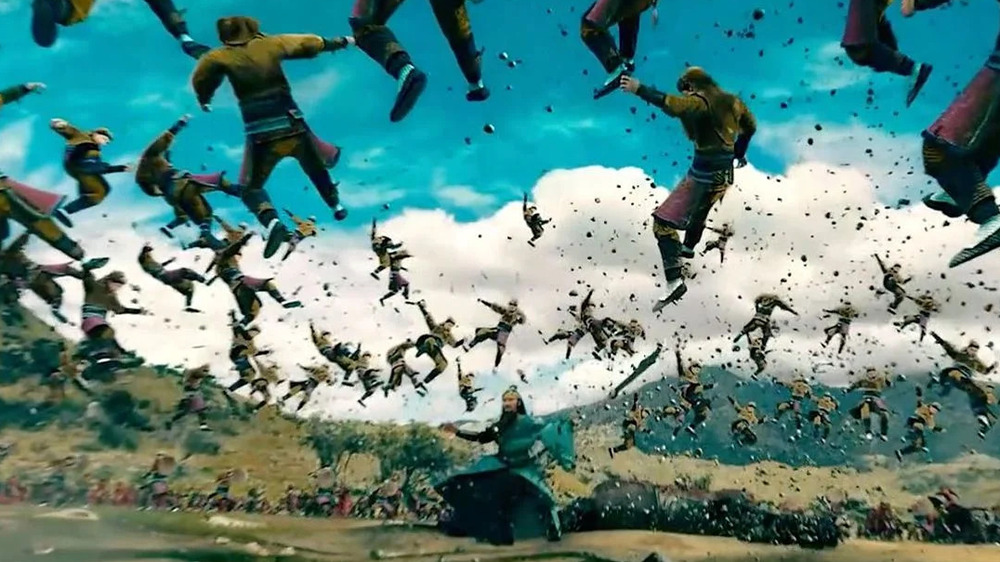Foreign Video Game Movies You Didn't Know Existed
Video game movies don't have the best reputation. Hollywood has taken multiple swings at adapting some of the biggest video game franchises around into live-action blockbusters, to varying degrees of success. Family-friendly takes on classic characters like Sonic the Hedgehog and Detective Pikachu have proven to be commercially viable, and the Resident Evil movies have carved out a cult fanbase. But most adaptations that attempt to bring a beloved game series to film, like Need for Speed, Assassin's Creed, and Warcraft, have failed to deliver.
The arduous history of video game movies doesn't just apply to Hollywood: Studios across the world have tried to adapt some of the biggest gaming franchises in history into films. Some of these foreign attempts are great, some ... not so much. One thing we can assure you of, however, is that you probably haven't heard of many of these flicks before. These are the foreign video game movies you've never heard of, from horror epics to romantic comedies.
Yakuza: Like a Dragon
2020's Yakuza: Like A Dragon proved to be a hit release. But even if you've played it, or any of the other popular Yakuza games released in the West since 0 broke the series wide open in 2017, it's probably safe to say that you hadn't heard of the open-world crime series in 2007. That wasn't the case in Japan, though. The Yakuza series has been a hit in its homeland since the first game debuted on the PS2 in 2005. It was so much of a hit, in fact, that a live-action adaptation of the first game, Yakuza: Like a Dragon, was released in Japanese movie theaters in 2007.
The movie's plot is very loosely based on the original Yakuza game, and features the primary characters of the series: Kazuma Kiryu, Goro Majima, and Haruka Sawamura. It's set in Kamurocho, the Yakuza series' main setting, a slightly fictionalized version of Tokyo's red-light district, Kabukichō. Like A Dragon was directed by legendary Japanese director Takashi Miike, known for his prolific output of over 100 feature films . Compared to many of his prior mob films, however, Like A Dragon received mediocre reviews. An English-subtitled version of the film premiered on June 23, 2008, at the New York Asian Film Festival, and was released on DVD in North America on February 23, 2010.
Tokimeki Memorial
In 1994, the original Tokimeki Memorial (directly translated to Heartbeat Memorial in English) was released in Japan. It single-handedly started one of the most popular and influential video game franchises you've probably never heard of. This high school dating simulator was one of the first of its kind, popularizing many of the genre's trademark mechanics. The player is placed in the shoes of a male student in a Japanese high school, and is charged with balancing his relationships with various female students and potential love interests. Tokimeki Memorial spawned many sequels, and established many core motifs that worked their way into, among other games, the Persona series. However, none of the Tokimeki Memorial games or their spinoffs have ever received official English localizations.
A direct-to-video live-action film adaptation, also entitled Tokimeki Memorial, was released in 1997. Unfortunately, it didn't have much in the way of star power and isn't beloved by fans. The film borrows character names and personalities from the first game, but the setting and plot is changed substantially. Instead of a whole school year, the plot of Tokimeki Memorial starts when five girls and one guy start a cafe business together over the course of one summer off from school.
Ace Attorney
First released for the Game Boy Advance in Japan in 2001, the Ace Attorney series eventually made its way over to the US in 2005 on the Nintendo DS. Capcom's visual novel-style detective game launched a franchise full of charming and unforgettable characters, centering around the incomparable goofball, defense attorney Phoenix Wright. Later entries in the Ace Attorney franchise brought new characters and ideas to the DS and 3DS. Unbeknownst to many Western fans, a live-action movie, also entitled Ace Attorney, was released theatrically in Japan in 2012.
Yakuza: Like a Dragon director Takashi Miike took on his second video game adaptation with Ace Attorney. The movie is a pretty straightforward adaptation of the first game, focusing on recreating two of the four cases. Happily for Miike, this release received much more generous reviews than Like a Dragon. Despite being live-action, critics hailed the film for nailing the cartoonish tone that is so crucial to the games' humor and satire. If you're a fan of Phoenix Wright and all his friends, there is no objection(!) to watching this campy joy ride.
Fatal Frame: The Movie
At the height of the PlayStation 1 and 2 era's survival-horror explosion, Fatal Frame became one of the top horror games in the US. Though it didn't quite reach Silent Hill levels of popularity, this photography-centric series made a major mark. It focuses less on action and shooting than its contemporaries, like Resident Evil. Instead, the Fatal Frame titles, which are set in Japan, have a strong focus on ghosts and spirits. It makes sense, then, that Fatal Frame became a movie — this approach is rare in games, but not at the cinema.
Unlike many video game movies that either take the plot directly from the game or completely throw it aside to create something new, 2014's Fatal Frame: The Movie takes inspiration from a few different places. The movie is based on Eiji Ōtsuka's novelization of the game, and is directed by Mari Asato, a director known for her horror contributions. The film was praised for its depictions of LGBT youth in Japan, and for being tonally faithful to the games. Though there have been talks of making a Hollywood adaptation of Fatal Frame, nothing has come of them yet. Maybe this nearly forgotten horror franchise will make a comeback on the silver screen? Regardless, fans can still enjoy the 2014 film for the terrifying treat it is.
Forbidden Siren
Siren, and its critically acclaimed PS3 reboot, Siren: Blood Curse, were part of the survival-horror craze of the early 2000s. This series was developed by Sony's since -shuttered Japan Studio, and focuses on stealth and puzzle-solving over action. In Europe and other regions, Siren is known as Forbidden Siren, which led to the 2006 Japanese movie adaptation being called by that name. Forbidden Siren was released in Japan in February 2006 to coincide with the Japanese release of the sequel game, Forbidden Siren 2. It is also known as just Siren in the US, but the titles are used interchangeably.
Extremely loosely based on the games, Forbidden Siren is about a Japanese writer who moves to a remote island with his family. The one rule they all have to follow? Don't go out when the siren is wailing. It's more of a generic Japanese horror film of the era than anything resembling what fans of the games may want, unfortunately.
Detention
Taiwanese game developer Red Candle Games has been one of the most interesting indie teams to follow over the past handful of years. Detention, the team's 2017 debut, is a small side-scrolling horror game set in 1960s Taiwan. It is largely inspired by Taiwanese folklore and culture and was well-regarded by the critics and players who found out about it. Red Candle's follow-up game, 2019's Devotion, garnered even more critical praise, but also spurred controversy and was removed from Steam after it got the developers into hot water with Chinese players.
Red Candle sold production rights for a Detention film to 1 Production Film Co. after the game was released in 2017. The Detention film was released in September 2019 by Warner Brothers Taiwan. It was a critical and commercial success. Reviewers especially praised the film for staying true to the themes and subject matter of the source material.
Corpse Party
The original Corpse Party game was one of a group of late '90s RPG Maker creations that exploded onto the internet. Initially just a PC-98 title, the game's immense popularity spawned ports and remakes that have found homes on numerous consoles and computers over the years, including Windows PC, PSP, iOS, and 3DS. These many versions of Corpse Party have enjoyed international success, and the franchise has inspired several manga and anime adaptations.
In 2015, Japanese director Masafumi Yamada turned Corpse Party into a theatrical feature film of the same name. The adaptation is a ghost-centric horror flick starring a young cast as a group of Japanese high-schoolers. They are transported to an abandoned elementary school where children were murdered years ago. The characters' names are taken from the games, but the premise is a slight departure from the story fans fell in love with. Still, Corpse Party was a successful enough attempt that it got a sequel, Corpse Party Book of Shadows, the next year.
Corpse Party Book of Shadows
2016 saw the release of a sequel to Corpse Party, entitled Corpse Party Book of Shadows. This subtitle is also the one given to a 2011 game in the Corpse Party series, released on PC, iOS, and Sony handhelds. The game of the same name is an anthology series that serves as a sequel, prequel, midquel, and alternate universe companion to Corpse Party Blood Covered, the 2006 remaster of the original game that was released internationally.
The film Corpse Party Book of Shadows is not as ambitious as the game of the same name, but it does a good job of expanding upon the first movie. For starters, it brought back the director and most of the cast of the first movie, and continues the story of those characters. Nijika Ishimori, of J-pop girl group Keyakizaka46, also made her acting debut in Book of Shadows.
Dynasty Warriors: Destiny of an Emperor
2021's Dynasty Warriors: Destiny of an Emperor got more mainstream hype than most of the movies on this list after its trailer dropped in March 2021. Still, this extremely popular Koei Tecmo franchise's first live-action film adaptation is dragging its feet on coming to US audiences. Despite the games being developed in Japan, the movie was produced by Chinese studios. However, it's not like the choice doesn't make sense: Dynasty Warriors is a franchise about famous figures from Chinese history, after all, who use massive weapons and mystical powers to hide waves and waves of enemies.
The movie is a solid reflection of the games: Historical figures like Lu Bu are present, as is tons of one-man-versus-one-hundred-style action, all set atop a rip-roaring metal soundtrack. Destiny of an Emperor is pure Dynasty Warriors, and that's exactly what fans want.
